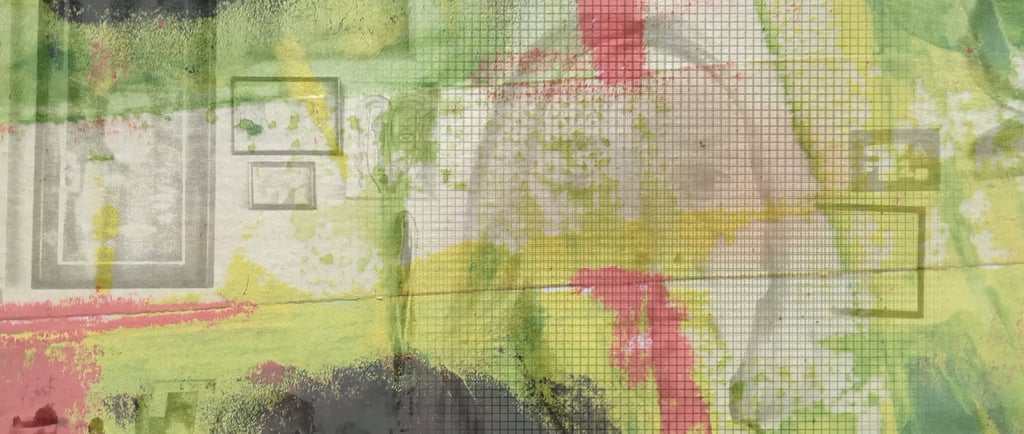Belonging and Otherness
BELONGINGSTORYTELLING
11/12/20253 min read


Personal narratives on belonging, home, and roots have long been silent companions in my life. These themes have followed me, like shadows across borders, as I moved between countries and cultures. They have been the quiet heartbeat beneath many human stories — stories of those who have shifted places, languages, and skies, while trying to hold onto a sense of self.
Yet, belonging is rarely straightforward. Often, we are the ones who “other” ourselves, consciously or unconsciously placing ourselves in categories of difference.
These internalized acts of separation grow from how we perceive our origins, our socioeconomic backgrounds, and the political realities of the lands we come from.
The Fragile Weight of Home and Identity
I encountered this “inner othering” many times, especially when I was moving to places considered more developed, or when I held a passport that required endless paperwork just to cross a border. Each visa form felt like an examination of worthiness: Am I worthy of traveling? Am I worthy of being seen?
These experiences built resilience, yes, but also planted deep seeds of self-doubt. They whispered stories of exclusion, making me question my belonging in spaces I worked hard to reach.
Recently, these feelings resurfaced. It is the month that marks my mother’s passing, a reminder of love, loss, and all that remains unsaid. I found myself missing my sister, thinking of my father who still lives in a post-war country struggling to heal. These reflections stirred sadness, even anger, and brought to surface the same inner voice that once asked: What if I must again prove that I am worthy, simply because of where I come from?
The Art of Listening to Pain
Through intimate conversations with someone I love deeply, I learned something profound, that sometimes what pain asks for is not fixing, but witnessing. To be seen and heard without judgment. To have our wounds acknowledged without being immediately neutralized.
Healing, I realized, is not about erasing the feeling of being “othered.” It is about giving it space, allowing it to breathe, to find its place in the greater story of who we are.
Sometimes, the feeling of otherness does not come from an act of exclusion by others, but from witnessing the the lives of those who were born into stability, or what we might perceive as economic and social stablity.
I have listened to stories told without hesitation, about summer schools abroad, about family homes that have never known war, about childhoods unshaken by economic collapse or political uncertainty.
And as I listened, a quiet storm brewed inside me. It was not envy. It was not resentment. It was something more complex, a kind of inner trembling that arises when I am reminded of my own father still living on the fragile edge of poverty, in a country impacted by conflict and slow recovery. His life, in its simplicity and struggle, stands as a mirror to mine — and to theirs.
There are moments when this comparison feels like a subtle haunting. Not because I want what others have, but because it exposes how deeply I have internalized the idea that my beginnings make me less, the pursuit of belonging became also a pursuit of worthiness. Every form I filled out, every visa application, they all whispered the same question: Are you worthy enough to cross this border?\
Over time, these external acts become internalized. We begin to build invisible walls within ourselves, trying to prove — not just to governments or systems — but to ourselves, that we are worthy of love, and presence.
Even though I no longer fill out visa applications, after years of living abroad, I now hold a more “suitable” passport — I still find myself triggered by certain conversations and quiet questions about identity, belonging, and origin.
I have found so much strength and grounding in my own story, and I have walked with intention on this path of healing. Yet, some parts of me still ache when touched. Some wounds still ask for patience, softness, and time.
And yet, I have learned that the person who most often “others” me — is me. Recognizing this truth is both painful and liberating. Because once I see it, I can begin to rewrite the story.
Reclaiming the Narrative
Over time, I have learned that the person who sometimes “others” me — is me. Recognizing this truth is both painful and liberating.
Otherness is a complex experience, both individual and collective. Healing from it is not a destination but a process of return to self, to compassion, to community.
Each time these feelings resurface, I remind myself to welcome them again. To listen. To release. Otherness is something we have absorbed, learned to recreate within our own minds. It becomes a pattern we repeat, unconsciously echoing the hierarchies that shaped us. But awareness cracks open the possibility of change.
Being “othered” may take a lifetime to understand and to heal, but the act of speaking about it is itself a form of resistance and restoration. The more we share, the more we listen the closer we come to collective healing.
If your own story carries echoes of otherness, belonging, and migration, You are invited to share your voice in the Online Archive of Personal Narratives. I would be honored to listen.